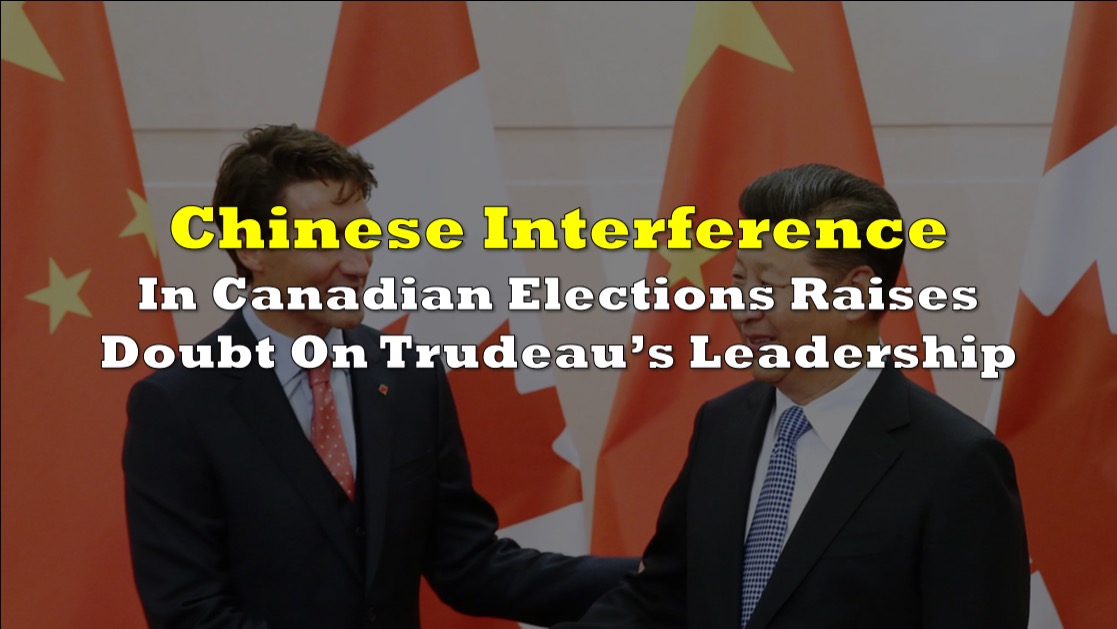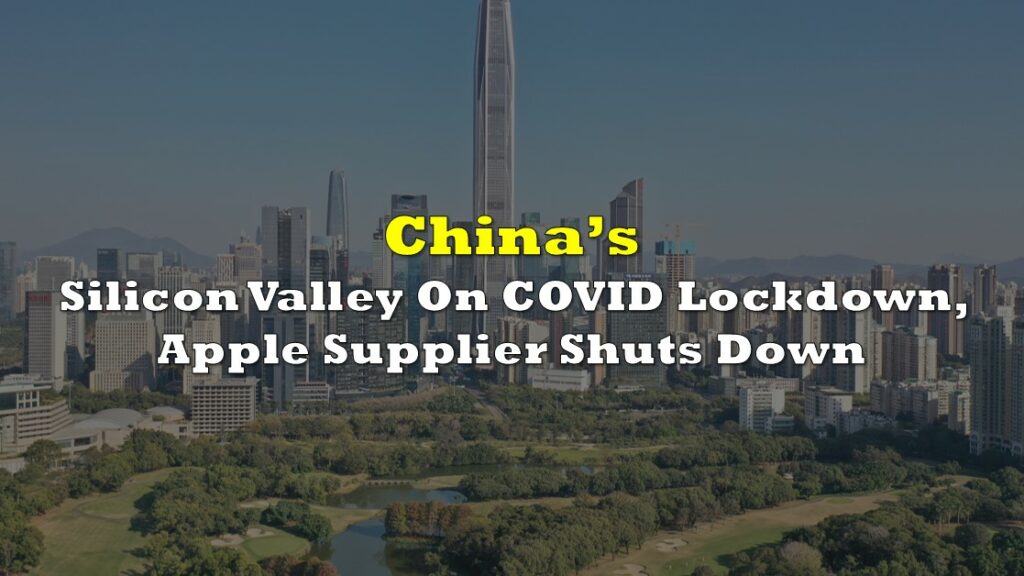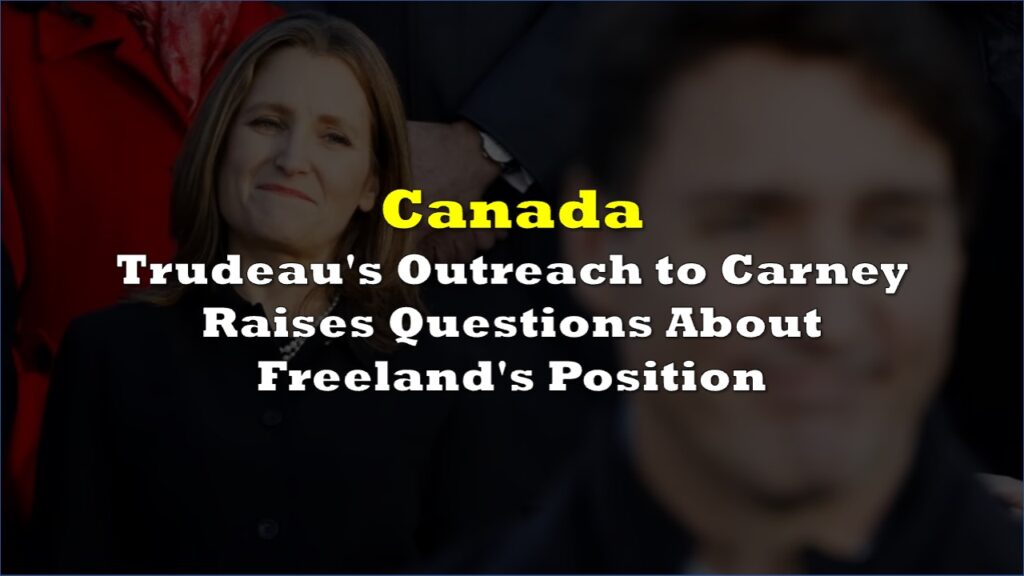China used a sophisticated strategy to destabilize Canada’s democracy during the 2021 federal election campaign, according to Canada’s major national intelligence agency, as Chinese diplomats and their proxies backed the re-election of Justin Trudeau and Liberal officials.
The full scope of the Chinese interference effort is revealed in papers obtained by The Globe and Mail from the Canadian Security Intelligence Service (CSIS) that cover the period before and after the September 2021 election that returned the Liberals to power.
The documents, gleaned from a series of CSIS intelligence-gathering operations, show how an orchestrated machine was operating in Canada with two primary goals in mind: to ensure the return of a minority Liberal government in 2021, and the defeat of certain Conservative candidates identified by China.
The documents say the Chinese Communist Party leadership in Beijing was “pressuring its consulates to create strategies to leverage politically [active] Chinese community members and associations within Canadian society.”
Beijing was also reportedly using Canadian organizations to advocate on their behalf “while obfuscating links to the People’s Republic of China.”
China runs interference
According to the confidential files obtained by The Globe and Mail, China’s previous consul-general in Vancouver, Tong Xiaoling, boasted in 2021 about how she assisted in the defeat of two Tory MPs.
And despite China’s view of Trudeau as the best leader for Canada, Beijing aimed to limit the current prime minister’s power, with a second Liberal minority in Parliament the optimum outcome.
One consular employee at an undisclosed Chinese diplomatic mission in Canada stated in early July 2021, eight weeks before election day, that Beijing “likes it when the parties in Parliament are fighting with each other, whereas if there is a majority, the party in power can easily implement policies that do not favour the PRC.”
Most importantly, intelligence reports suggest that China was dead set on preventing the Conservatives from winning. China used disinformation campaigns and proxies linked to Chinese-Canadian organizations in Vancouver and the Greater Toronto Area, both of which have major mainland Chinese immigrant communities, to oppose the Conservatives and support the Liberals.
According to the CSIS documents, Chinese diplomats and their agents, including some members of the Chinese-language media, were told that the Conservative Party was too critical of China and that, if elected, it would follow the lead of former US President Donald Trump and bar Chinese students from certain universities or education programs.
“This will threaten the future of the voters’ children, as it will limit their education opportunities,” the CSIS report quoted a Chinese consulate official.
CSIS also described how Chinese diplomats engage in foreign interference operations in support of political candidates and elected authorities. Undisclosed cash donations to political campaigns are one tactic, as is hiring international Chinese students and “assigning them to volunteer in electoral campaigns on a full-time basis.”
Influencing vulnerable Chinese immigrants in Canada is also an important aspect of their interference operation. According to intelligence assessments, an unnamed Chinese consulate official stated that it is “easy to influence Chinese immigrants to agree with the PRC’s stance.”
In 2021, the Liberals won 160 seats–ensuring a third term for Trudeau in another minority government– while 119 were won by the Conservatives, 32 by the Bloc Québécois, 25 by the NDP, and two by the Greens.
But for the second time, the Liberals lost the popular vote to the Conservatives. They also recorded the lowest vote share for a victorious party.
Former federal Conservative leader Erin O’Toole–Trudeau’s opponent in 2021–claims that Chinese disinformation in the election campaign cost the party eight or nine seats.
The CSIS reports were shared with senior government officials as well as Canada’s Five Eyes intelligence partners, the United States, the United Kingdom, Australia, and New Zealand. Part of this information was also provided to French and German intelligence services.
Balloon to buoy?
The election interference issue becomes more material on the heels of the spotted Chinese spy balloon that floated over the Canadian airspace, and eventually cruised over US. The dirigible was eventually shot down by the US government, irking the Chinese counterpart who claims the floating balloon was of civilian nature.
Trudeau also authorized a same fate for another flying balloon in Canadian airspace a week later.
Now, recent reports say this past fall, the Canadian military discovered and recovered Chinese monitoring buoys in the Arctic. The buoys were discovered as part of Canadian Armed Forces’ Operation LIMPID, a continuous effort to offer early identification of risks to Canada’s security.
“The Department of National Defence (DND) and Canadian Armed Forces (CAF) are fully aware of recent efforts by China to conduct surveillance operations in Canadian airspace and maritime approaches utilizing dual-purpose technologies,” Daniel Le Bouthillier, head of media relations at the DND said in a statement.
Dual-purpose technology refers to equipment that can be utilized for both civil and military purposes.
“Under Operation LIMPID, the CAF monitors Canada’s air, land and sea approaches, and since 2022, it has stopped attempts to surveil Canadian territory,” he added.
However, to preserve “the integrity of the operations” Le Bouthillier did not elaborate further on the details of the recovered buoys.
“Total confidence”
After The Globe and Mail report, Trudeau stated that foreign meddling in elections is a significant issue that Canada must be vigilant about.
“This is an extraordinarily serious issue… we are seeing systematic attempts at interference by countries like China and Russia and others who want to destabilize democracies,” Trudeau told reporters in Richmond Hill, Ontario. “Everyone should be worried about the fact that countries like China and Russia and others are continually trying to spread misinformation and disinformation, trying to interfere in our elections unsuccessfully, so far.”
China-Canada relations have been strained since the imprisonment of Huawei Technologies executive Meng Wanzhou in 2018 and the following arrest of two Canadians on spying allegations by Beijing. The three were later released, but their relationships remain strained.
Trudeau earlier has stated that no tampering was discovered by the Security and Intelligence Threats to Elections (SITE) Task Force set up to monitor threats to federal elections, telling the Commons in November last year that the task group “determined that the integrity of our elections was not compromised in 2019 or 2021.”
He added that China has been attempting to meddle with federal elections for years but Canadians can have “total confidence” in the integrity of its election results.
According an earlier The Globe and Mail report, the Prime Minister attended a national-security briefing last fall in which he was informed that China’s consulate in Toronto had targeted 11 candidates in the 2019 federal election. Despite the consulate’s efforts to promote the campaigns on social media and in Chinese-language media sources, CSIS Director David Vigneault informed Trudeau that there was no evidence that China’s involvement activities had helped elect any of them.
“We have taken significant measures to strengthen the integrity of our elections processes and our systems, and we’ll continue to invest in the fight against election interference, against foreign interference of our democracy and institutions,” Trudeau then said after the news broke.
“Stand up to China”
In a separate editorial piece, The Globe and Mail did not mince words in addressing the prime minister following its report on the alleged Chinese interference. The editorial board highlighted the difference between Trudeau’s actions against the Chinese spy balloon which he ordered to shoot down and the recent attempts to interfere with Canadian elections.
“It is undoubtedly true that Chinese interference didn’t change who formed government in 2019 and 2021. But waiting for Beijing to actually rig a Canadian election should not be anyone’s standard for when to become concerned,” the editorial said.
The team also noted that Trudeau seems to be more concerned about how the CSIS reports were leaked.
“It’s certainly a sign that security within CSIS needs to be reviewed. And I’m expecting CSIS to take the issue very seriously,” The Globe and Mail quoted Trudeau.
Journalist Don Martin, in his CTV News op-ed, also questioned the lack of action from the Trudeau government after discovering the Chinese interference.
“It defies belief that Trudeau would soft-peddle this story because China’s goal was to help elect his Liberal government, but there’s little else by way of an alternative explanation for this prime minister’s passive blindness to spy agency concerns while lasering in on finding the source of the leak,” Martin wrote.
Conservative party leader Pierre Poilievre also pointed out that Trudeau’s concerns lie mostly on how the CSIS reports got to be made public.
CSIS reports that the communist dictatorship in Beijing interfered in our elections to help the Liberals.
— Pierre Poilievre (@PierrePoilievre) February 21, 2023
Justin Trudeau's biggest concern? That Canadians found out about it.https://t.co/2odZjdA6f7
“Smearing and discrediting”
China has expectedly denied charges that it meddled in the Canadian federal elections, calling Canadian media reports citing intelligence materials “false” and an attempt to “smear” Beijing.
The Chinese consulate general in the western city of Vancouver issued a statement accusing Canadian media of “smearing and discrediting China” and expressing “strong dissatisfaction.”
The statement said authorities had “made it clear on many occasions that China has always adhered to the principle of non interference in the internal affairs of other countries and has never interfered in any Canadian election.”
The accusations would harm “the friendship and interests of the peoples of both countries,” according to the statement.
The statement also urged the relevant media to follow professional ethics and “immediately stop smearing and attacking China and the Consulate General, and do more good deeds” to foster mutual understanding.
Despite concerns – no public inquiry will occur
Unsurprisingly to many, Trudeau yesterday stated that there will not be a public inquiry into the matter of China’s interference into Canada’s democracy. Despite former chief electoral officer Jean-Pierre Kingsley’s comments earlier this week that stated an independent inquiry is necessary to settle the matter, Trudeau has determined that he knows better on the matter, and won’t be pushing for a deeper investigation.
“Canadians can be and should be confident that our institutions, particularly our electoral and democratic processes, have not been compromised, were not compromised in the 2019 and 2021 elections. It is a very good thing that Canadians are understanding how serious it is that China and other countries are continuing to try to destabilize and influence our democracies and our institutions,” Trudeau commented when prompted.
The CSIS documents related to the matter however are not available to all MP’s, prevent a full analysis of the situation from occurring. The Liberals and NDP jointly denied a motion by the Conservatives on Tuesday meanwhile that would have seen the House of Commons Law Clerk review the documents and redact any sensitive information.
How can Canadians be confident in its institutions, if no further inquiry will occur when such matters arise? And if there was no impact to the overall outcome of the recent elections, where is the harm in conducting a deeper public inquiry?
Information for this briefing was found via Reuters, Bloomberg, The Globe and Mail, and the sources mentioned. The author has no securities or affiliations related to this organization. Not a recommendation to buy or sell. Always do additional research and consult a professional before purchasing a security. The author holds no licenses.









